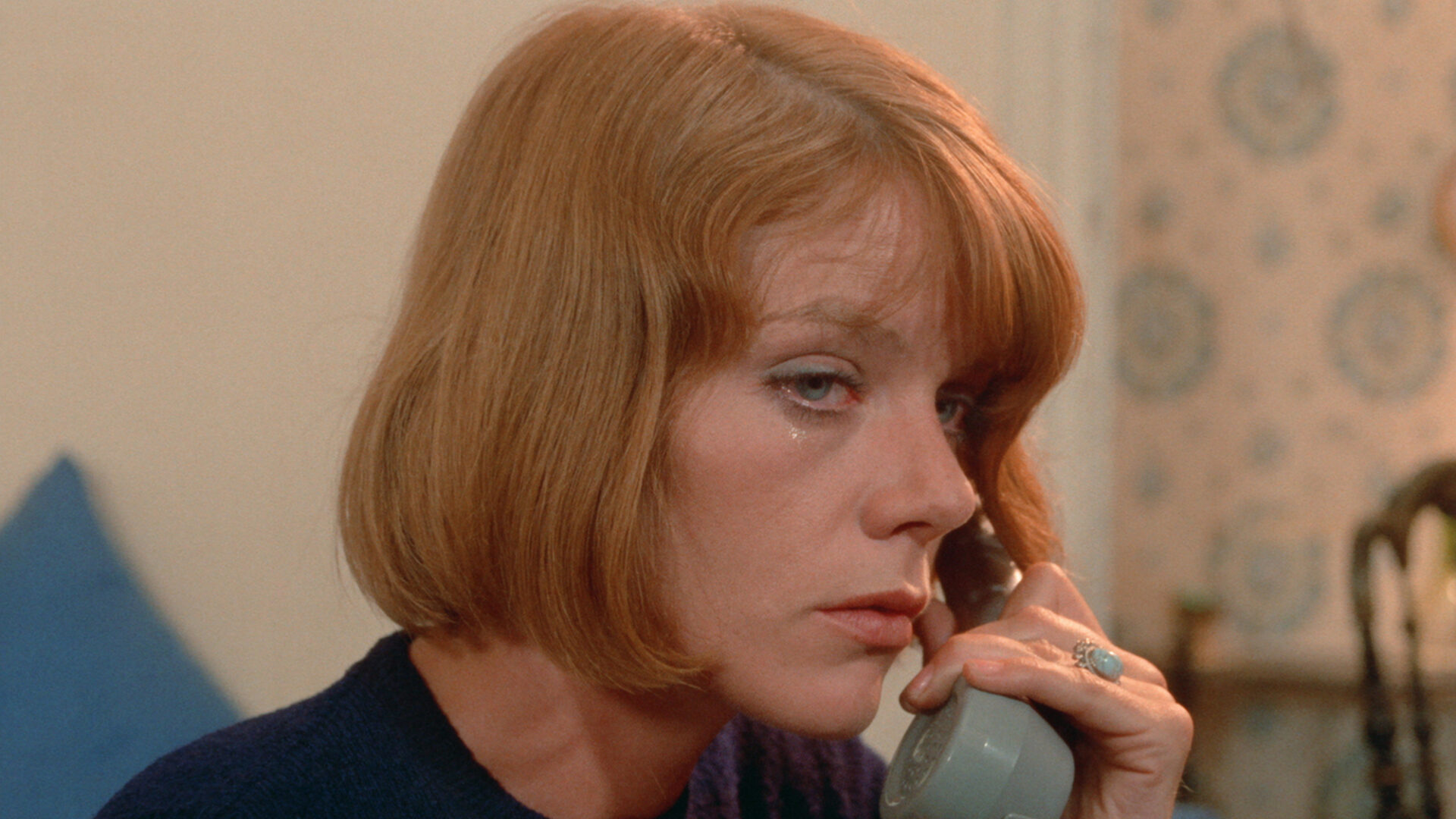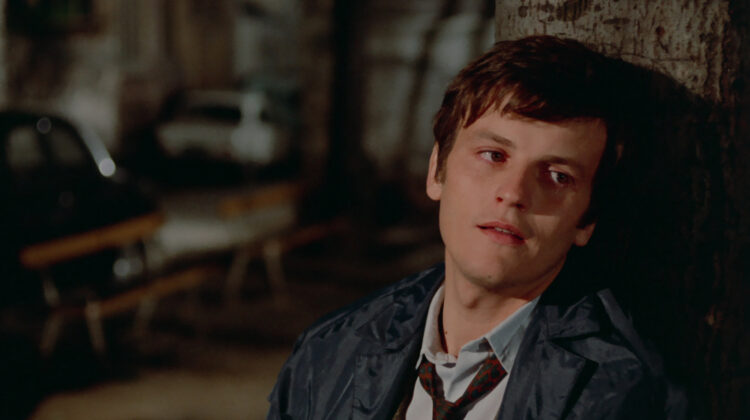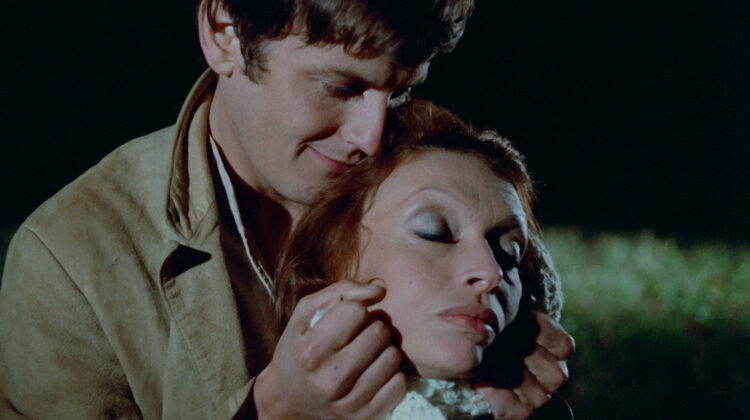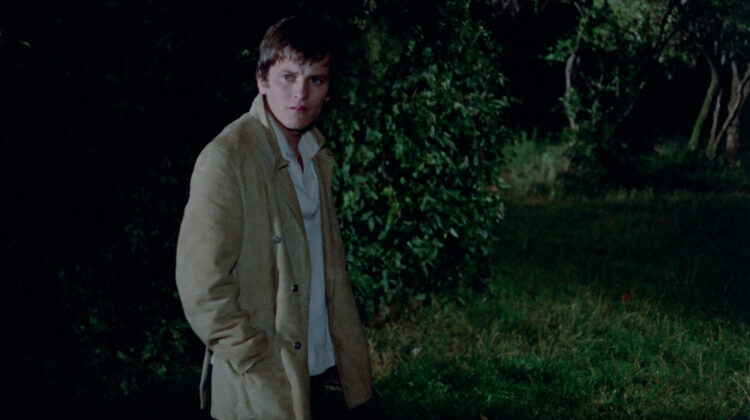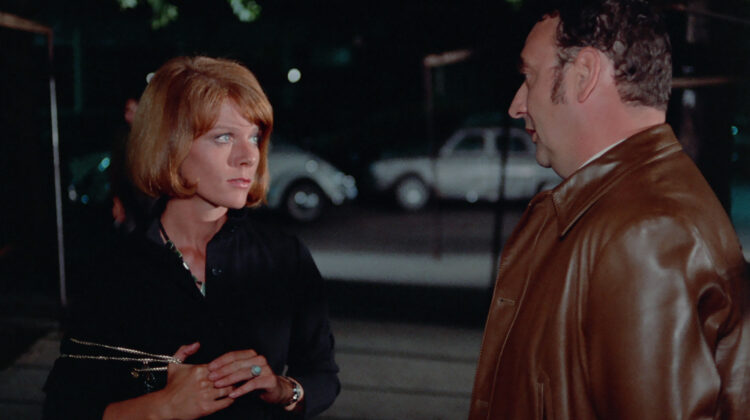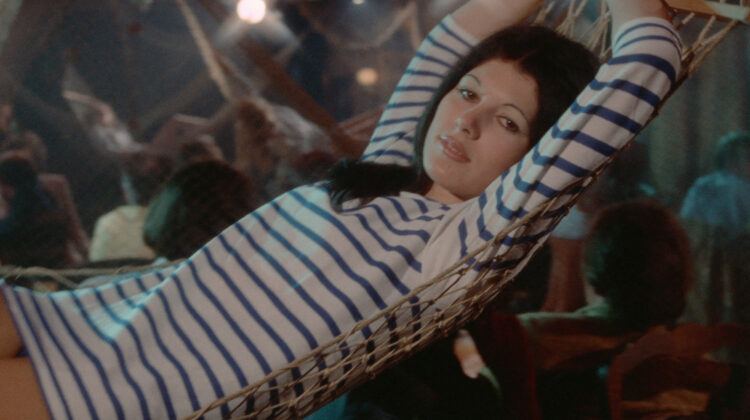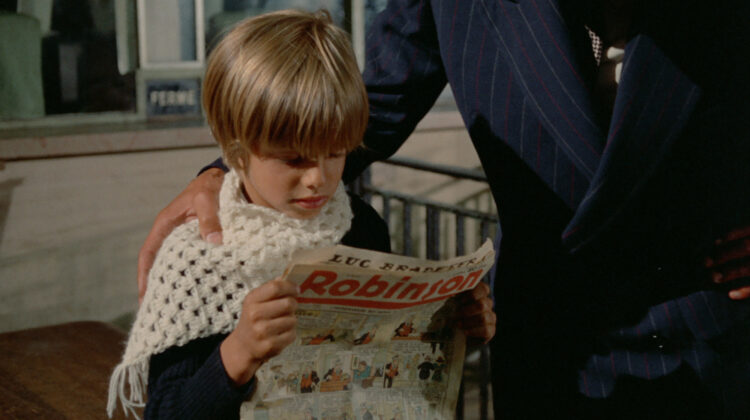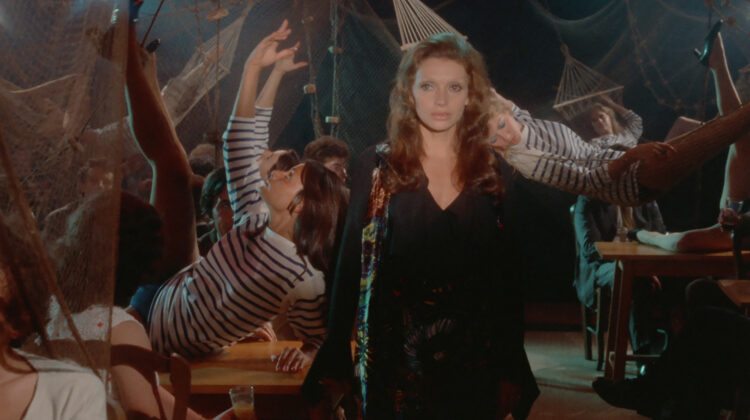- The Strangler
- L’étrangleur
- France1970
- Paul Vecchiali
- 96 DCP
- 14A
Screening Dates
- January 4 (Thursday) 8:10
- January 6 (Saturday) 8:35
- January 8 (Monday) 6:30
“Poetic … A strange, seductive film that takes the conventions of the serial-killer thriller and explodes them with baroque colours and convulsive camera movements.”
Beatrice Loayza, The New York Times
Paul Vecchiali’s newly restored third feature, a foray into crime and its impact on a community, is the perfect introduction to his cinema, its day-night structure providing the space for both quiet intimacy and baroque flourishes. In the director’s grandly unsentimental melodramas, betrayal and death wait in the wings of the world’s rare moments of flickering warmth. Enter Émile (Jacques Perrin), a serial killer with an ethic: he targets women he believes are already lonely enough to die. But Vecchiali’s film is no slasher. Instead, each encounter between Émile and a potential victim opens up a rich, imaginative space of private life—filled with art, loss, and irreducible personality—belonging to single women in Paris. Vecchiali punctuates his film with theatrically staged murders, but also melancholic reveries, songs, and two sharply drawn detective pursuits. This is a thriller that understands the close links attaching genre cinema and nightlife, intelligence and crime.
In French with English subtitles
“Vecchiali’s third feature and first masterpiece … One of the most idiosyncratic serial killer films ever made … Vecchiali invests every turn and sweep of his dynamic camerawork with poetry, stylistic verve, and, most characteristically of all, intense empathy, generosity, and love.”
Bingham Bryant and Graham Carter, curators of “Paul Vecchiali, Producer: From Jeanne Dielman to Diagonale,” Metrograph
“A uniquely eccentric anti-giallo … Queerness and violence intermingle [in] Vecchiali’s singular approach, melding genre trappings with his signature melodrama.”
Elissa Suh, Screen Slate
“A refracted noir … Vecchiali’s ‘poem about the night’ harks back to the abstract-flirting popular cinema of the late 1920s and early 1930s, from von Sternberg to Epstein.”
Patrick Preziosi, MUBI Notebook
